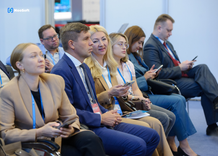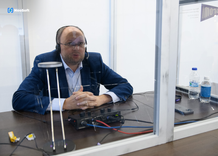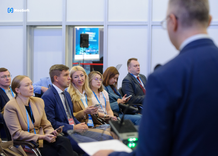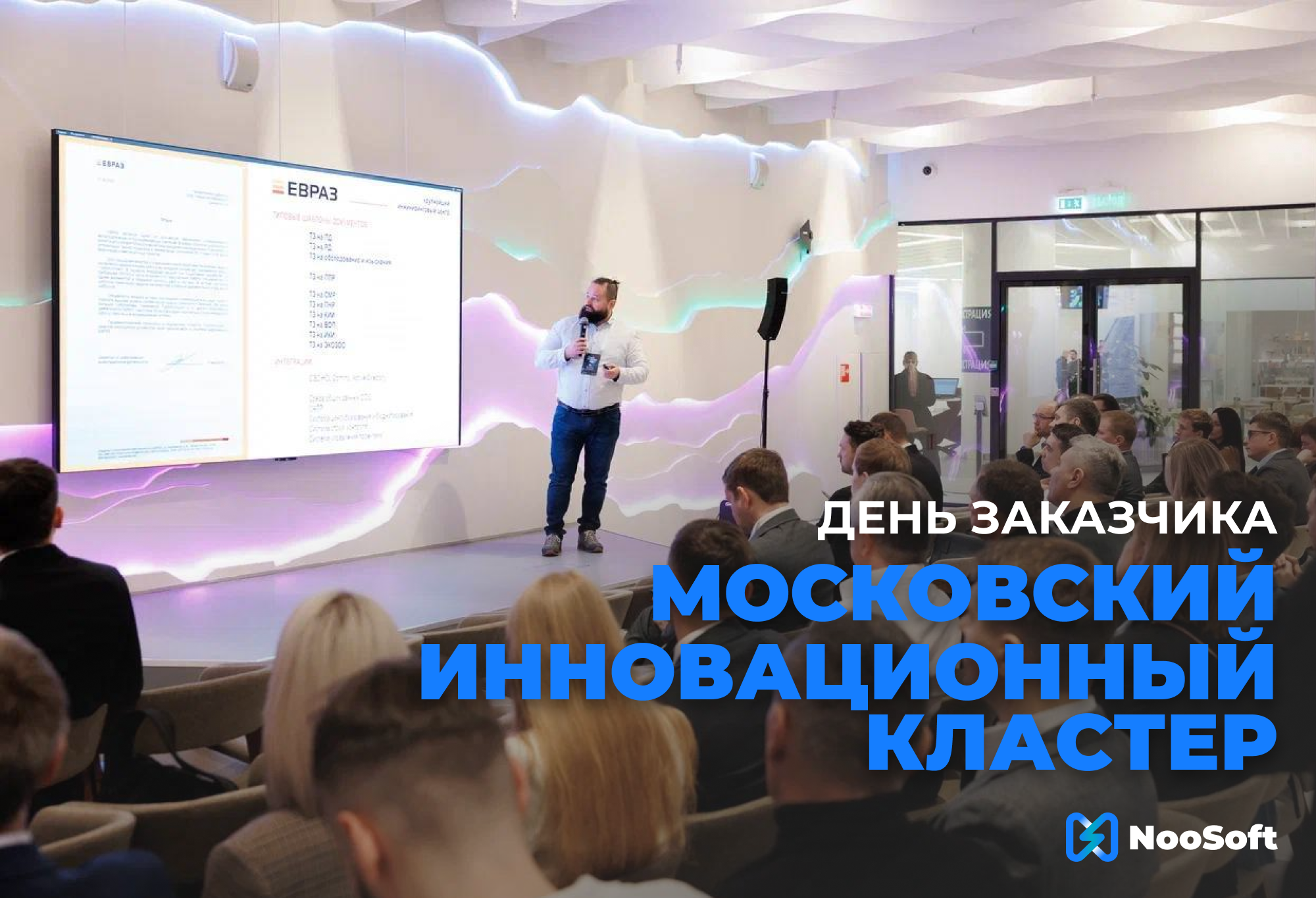NooSoft at the RZD ITC session: digital solutions for logistics and the international market
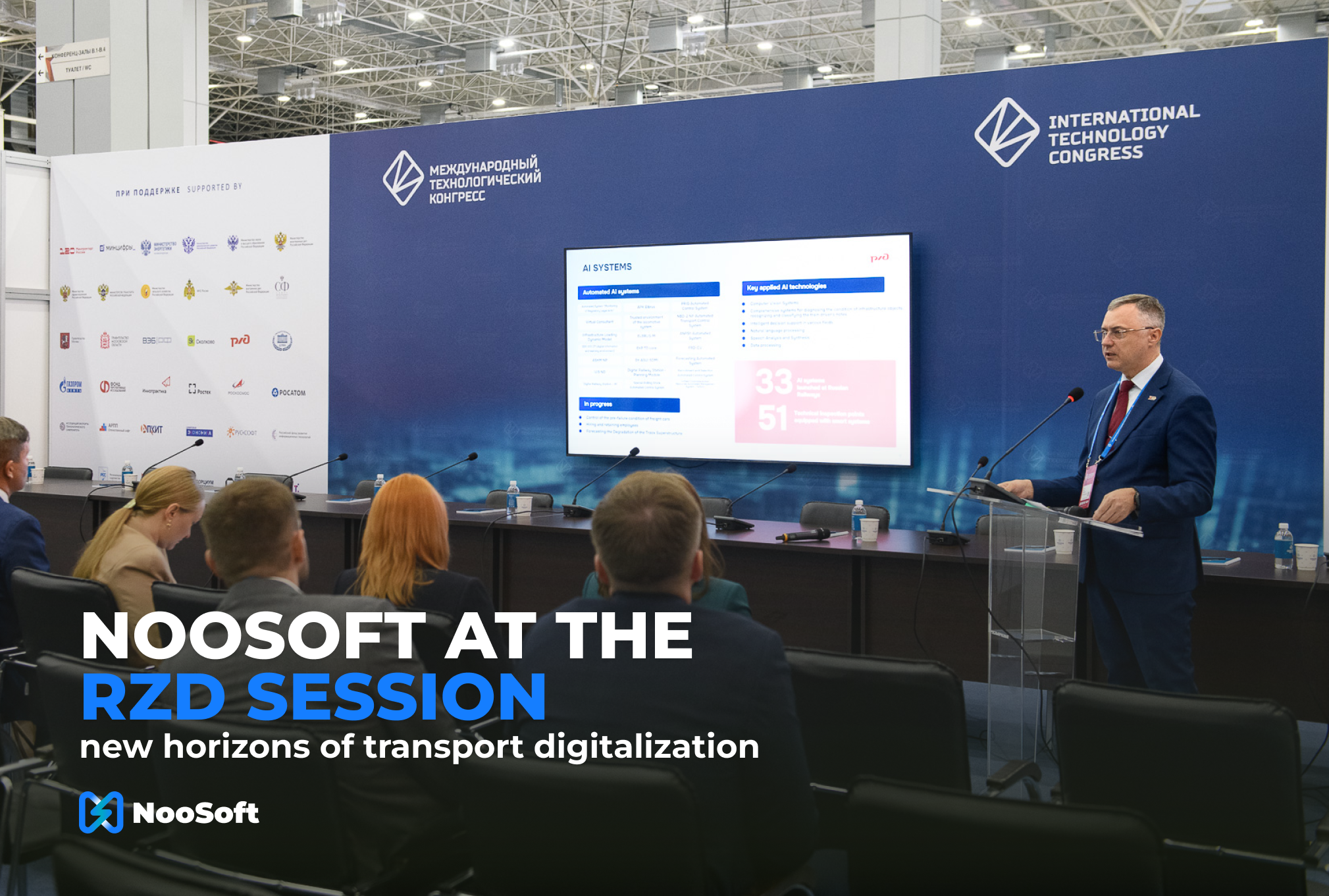
The scale of digitalization of Russian Railways
Today, Russian Railways employs over 700,000 people. Including families and close circles, the number of people involved in the company's ecosystem reaches several million. Russian Railways is not only one of the largest employers in Russia but also a leading driver of digitalization.
In terms of the volume of data processed, Russian Railways can be definitely called one of the largest data operators in the country: the volume of corporate storage exceeds 39 petabytes, and annual growth amounts to approximately 5 PB.
The session brought together representatives of railway administrations from India, Mongolia, Belarus, Armenia, Kazakhstan, and other countries. Over 3,500 viewers joined the broadcast, demonstrating strong international interest.
The holding is actively investing in digital transformation. Sixteen key projects were presented at the session, some of which are aimed not only at the domestic market but also at exports. Topics covered included data management, computer vision development, new HR technologies, passenger flow forecasting, and onboarding programs for SVO participants.
Key projects and areas
- Sergey Vislenev, CEO of ICDV (Industry Center for the Development and Implementation of Information Systems), presented an overview of Russian Railways' digital transformation and its export portfolio of IT solutions. He outlined the key achievements of digitalization in recent years. He discussed how Russian Railways is building its export portfolio of IT solutions: from internal systems to products in demand abroad.
- Pavel Dykun, Commercial Director of Russian Railways Technologies, emphasized that Russian IT developments are in demand abroad. He noted the interest of partners from India, Mongolia, and Kazakhstan in transportation management systems and IT services. Digitalization is becoming a new export trend for Russia, and Russian Railways is playing a leading role in this area.
- Ekaterina Martynova (VNIIZHT) presented a report on the history and development of the system that has supported passenger transportation for over half a century.
● Express-1, the first ticket reservation system in the USSR, was launched in 1972.
● Its successor, Express-2, entered international markets between 1982 and 1994.
● Express-3, which integrated new IT solutions, was launched in 2002.
● A new platform is currently being developed that integrates schedule management, resource management, and passenger services.
The Express system has evolved into a unified digital transportation system: from train schedules and ticket sales to mobile apps, intelligent turnstiles, and a virtual assistant. - Irina Dolzhenko (Russian Railways IT Department) focused on working with big data. Russian Railways manages colossal amounts of information, measured in tens of petabytes: passenger flows, freight traffic, and infrastructure.
She also discussed the challenges and solutions in working with data.
Challenges: duplication of information, disparate sources, weak methodology.
Solutions:
● A unified glossary and repository,
● A corporate data warehouse,
● BI tools such as Luxms, Sputnik, and others,
● Standardization of processes and architecture,
● Development of a data-driven culture.
This is how a data management ecosystem is being formed, ensuring Russian Railways' technological sovereignty and readiness to operate at the level of the world's largest digital corporations. - Pavel Popov (NIIAS) spoke about the implementation of computer vision technologies that improve transportation safety and monitor infrastructure in real time.
He presented the TRINETRA system for locomotives. It recognizes obstacles and signals at a distance of up to 1,100 meters, alerts the driver via a display, and records video that is stored for up to 15 days.
This additional safety feature reduces the impact of human error and paves the way for the development of trains with autonomous control elements. - Maria Pimenova (Digital Services) demonstrated how Russian Railways is transforming its HR processes.
The HR-Tech ecosystem unites 22 digital systems, including:
● Electronic HR document management (280,000 participants),
● Career portal,
● Mentoring and talent pool system,
● Chatbots and voice services,
● Employee portal with 70+ services – from certificates and vacations to medical services.
This is how Russian Railways is building a modern HR model: from recruitment to professional development. - Alexey Pavlov (Russian Railways Corporate Property Department) discussed in detail the creation of a unified end-to-end system, SUPRIM, for property management, which ensures asset control across the company's entire network.
He presented the system.
Russian Railways owns unique assets:
● 92,000 buildings,
● 271,000 structures,
● 29,000 land plots,
● 84,000 railcars, and 2.7 million units of equipment.
SUPRIM digitalizes asset management:
● over 200 attributes for each asset,
● integration with Rosreestr and internal systems,
● import-independent architecture,
● transition from "accounting" to intelligent asset optimization. - Maxim Fadeev's presentation (CER) focused on the use of AI for forecasting.
The simulation modeling system analyzes schedules, passenger flows, and station occupancy. It helps:
● forecast demand,
● create optimal schedules,
● assess the impact of new station construction,
● plan for freight traffic growth.
Each of these projects demonstrates that Russian Railways is systematically building a digital infrastructure that is becoming a model for other industries.
NooSoft's View
For NooSoft, participation in the Russian Railways session is an opportunity to showcase our own ideas and solutions. We have been working on logistics projects for a long time and see several directions where we can strengthen Russian Railways' digital transformation:
- Big data management – analytics, leak prevention, process optimization;
- Computer vision – implementation and scaling of logistics and transportation solutions;
- Integration of export solutions – adaptation and localization for foreign markets;
- Digital services for employees and families – development of HR technologies, adaptation programs, engaging ecosystems.
"Russian Railways is the largest data operator and a driver of digitalization in Russia. We already have ideas for how to complement their projects: from information security to services for employees and families. For NooSoft, this is a strategic partnership that we are ready to develop," noted Vitaly Lazhintsev, CEO of NooSoft.
We are confident that the synergy between business and technology partners will enable us to scale these projects and bring them to the international stage.
The RZD session at the ITK-2025 demonstrated that the digital transformation of the transport industry is reaching a global level. For NooSoft, this is further confirmation that we are moving in the right direction, working with the market leader and in dialogue with key partners.
Translated by Anastasia Lazhintseva
